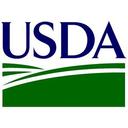NBB leads fight against European trade duties

November 17, 2014
BY The National Biodiesel Board
With millions of diesel vehicles and strong public support for renewable fuels, the European Union represents a significant market for biodiesel. It is a market that was effectively closed to U.S. producers, however, when the EU imposed trade duties in 2009 blocking U.S. biodiesel shipments that at the time totaled roughly 300 million gallons annually.
Today, the EU is reviewing those trade duties and determining whether to reinstate them for another five-year period, as the European Biodiesel Board has requested. The National Biodiesel Board is leading the fight against their reinstatement.
For weeks, NBB has worked with biodiesel producers and our legal team to gather sales data, import-export statistics, and other information demonstrating that the trade duties are protectionist and unnecessary. Those efforts culminated in September, when NBB filed an objection with the European Commission urging it to allow duties on U.S. biodiesel to expire this year as scheduled, citing overwhelming evidence that global trade for biodiesel has changed dramatically since the duties were imposed.
In the filing, NBB emphasized that European biodiesel producers are able to sell biodiesel in both Europe and the U.S. without duties or limitation and can freely participate in U.S. policies such as the renewable fuel standard and the U.S. biodiesel blenders tax incentive. At the least, NBB maintained, U.S. producers should be able to participate in the European market without having to pay punitive duties.
Advertisement
Advertisement
“We have presented a strong case for ending these protectionist barriers that are unfairly hurting U.S. biodiesel producers even as European producers are taking advantage of the U.S. market,” said NBB Vice President of Federal Affairs Anne Steckel. “As we speak, European biodiesel producers are sending biodiesel to the U.S., with significant policy support, while at the same time the European market has been cut off from U.S. producers.”
The review process is expected to take 12 to 15 months, and the commission could decide to continue the duties or remove them in total or in part.
Advertisement
Advertisement
Related Stories
Montana Renewables LLC has delivered its first shipment of 7,000 gallons of SAF to Dearborn, Michigan's Buckeye Pipeline facility. From there, the fuel will be transported to the Detroit Metropolitan Airport via pipeline for use by Delta Air Lines.
NYC took a monumental step towards clean air and a sustainable future on Jan. 11 with the grand opening of the city's first retail fuel station dispensing renewable diesel. The project is a collaboration between Sprague and Sonomax.
The USDA on Jan. 11 awarded $19 million under the Higher Blend Infrastructure Incentive Program. The grants will support projects in 22 states to expand the availability of higher ethanol and biodiesel blends.
Jet Aviation partners with World Fuel Services to offer SAF in Bozeman, Montana, and Scottsdale, Arizona
Jet Aviation announced on Dec. 22 that it has signed an agreement with World Fuel Services to secure and offer sustainable aviation fuel (SAF) on-site at its FBOs in Bozeman, Montana, and Scottsdale, Arizona, effective immediately.
Neste has partnered with Coleman Oil Company, a leading provider of fuels, biofuels, lubricants, and related products, to enable cities and businesses to have easier access to Neste MY Renewable Diesel in the state of Washington in the U.S.
Upcoming Events










